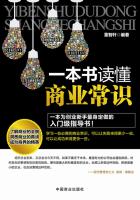The resource allocation implied by the above equilibrium,while satisfying the Pareto condition,takes an interesting form which has yet to be observed:There are many tenants working on one farm with each tenant committing a trivial amount of labor;each tenant works on many farms,with his aggregate income from these farms covering his alternative earning.In substance,this is identical with the form under which each tenant commits all his labor inputs to one farm until the marginal product of tenant labor equals the marginal tenant cost.However,we never observe tenants'dispersing their inputs among many farms as described because transaction costs,and in particular the cost of contracting and the cost of moving from farm to farm,are not zero.
[1].In a less comprehensive form,this is an alternative expression of the results obtained in chapter 2.
[2].Suppose the marginal tenant receipt curves rise before falling,and suppose the production functions in all farms are identical.Given r,the tenant(who is now entirely free to choose)will disperse his total inputs until the average tenant receipt,(q/t)(1-r),for each farm is at a maximum,or the marginal product of land equals zero.This is an alternative view of a condition implied by the law of variable proportions under linear homogeneity.
Indeed,under private ownership of resources,it is difficult to define a set of constraints which makes position A in figure 5 an equilibrium.Under state ownership of land,however,an interesting set of conditions for position A can be specified:(a)that landownership belongs to the state and the government arbi-trarily assigns land to tenants with rents collected on a share basis;(b)that the tenant is free to work elsewhere at a market wage rate and the amount of labor he uses on the state land is not stipulated;and(c)that the tenant's lease right over the state land is not transferable in any form.If strictly enforced,it appears that equilibrium will be at A,and the residual earnings for the government tenants are similar to"welfare"payments.Yet this is hardly the set of constraints which writers on sharecropping have in mind.
[3].If the industry supply of tenant labor is rising,the entry of tenants will be associated with a gradual rise in the wage rate.This complication is ignored here,and the wage rate used in figure 5 is the one finally determined in the market.
D.Tests of Implications
Just as D.Gale Johnson called for empirical confirmation of resource use under share tenancy in 1950,Chinese writers made a similar inquiry into tenant farming in general some twenty years earlier.Data on tenant farming was then assiduously compiled.In the late 1920s and early 1930s in China,attacks on farming under tenancy were common,and the desirability of private landownership was a subject of frequent debate.Lacking standardized economic theory to support their arguments,several Chinese organizations and independent writers resorted to empirical investigations.The debate on the tenancy issue was soon terminated by the Sino-Japanese War.And,with the exception of two noted works in the English language,both by John Lossing Buck,the greater part of these findings has since remained unknown.[1]
The aforementioned findings,inadequate as they may seem,constitute the most comprehensive body of evidence relating to agricultural land use under unrestrained private property rights that I could find.The Chinese experience,together with findings from elsewhere in Asia,will be applied in this section and the next chapter.Note,however,that in every instance we use only data collected from periods and locations where the existing system of property rights conforms to the constraint on the basis of which the theory of share tenancy is derived.Therefore,the postwar farm land reforms rule out the use of Asian agricultural data of the past twenty years in this part of the study.
Applying the implications of alternative theories of share tenancy to observations,we can perform several simple tests.
According to the standard theory of share tenancy derived in chapter 2,given the production function,the rental percentage depends upon the fertility of land and the alternative earning of the tenant.Specifically,we should observe a higher rental per-centage if(a)the land is more fertile or(b)the cost of tenant inputs is lower.[2] Evidence confirming this hypothesis is strong:
1.According to an investigation which covers 641 sample farms in eleven localities in China(1921-25),J.L.Buck observed:
As rent the tenant gives the landlord one-half of the grain and straw from wheat and rice land,two-fifths of the grain and straw from rice land only,and three-tenths of the grain and straw from poor land.[3]
Likewise,it was observed in Kweichow Province(1929-30)that:
The rental shares depend on the fertility of land.On the average and roughly speaking,for upper grade land the rental share is 60 per cent;for medium grade 50 per cent;and for lower grade 40 per cent.[4]
Casual observations aside,numerical data showing the same patterns were collected by the Legislative Yuan(China,1930)and the Department of Internal Affairs(China,1932).[5] The findings of the latter have been computed and placed in Appendix B,because they encompass twenty-two provinces in China with seven grades of land.
2.In Taiwan,a maximum rental of 37.5 percent of the annual yield was enforced by the government in 1949.This maximum percentage was uniform for all tenant contracts,regardless of whether the land involved was paddy field or dry field.The data reveal that 99.4 percent of the paddy fields under tenancy were affected by this share restriction;that is,the initial rental share was higher than 37.5 percent of the yield.However,only 50.9 percent of the dry fields under tenancy were affected by the same restriction.[6] This implies that higher rental percentages were generally associated with the more fertile paddy fields under a free market.















